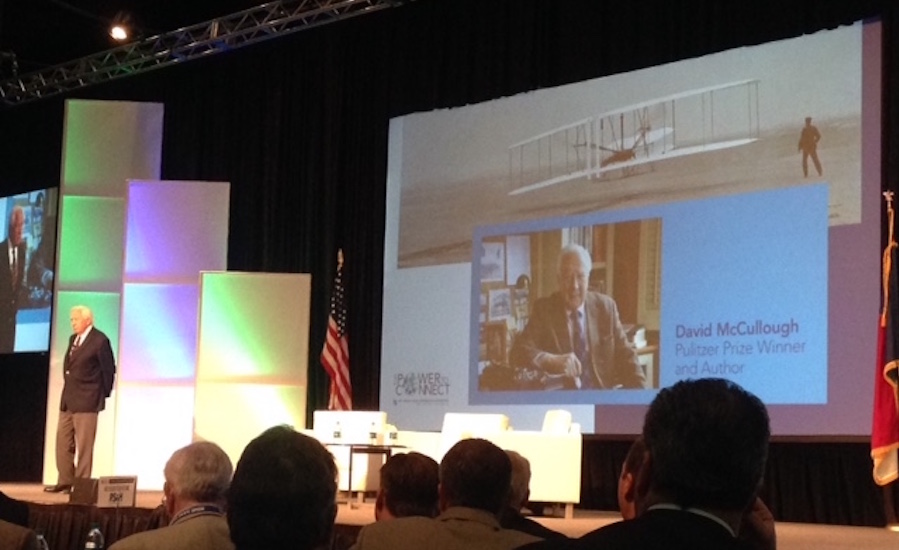Captive calves, boots doubling as flower vases, and pretty terrible Chinese-take-out style food in the conference hall….that was Houston.
Tattoos, food trucks, pedicabs and heavy metal blaring out onto the sidewalk….that was Austin.
But more importantly, this month, Houston was where the venerable author David McCullough briefed a rapt audience of airport infrastructure professionals on how a couple of bicycle mechanics from rural Ohio managed to build and fly the first airplane. And Austin was where Lilly Ledbetter briefed a rapt audience of Womens Transportation Seminar members about her prolonged court battle after an anonymous note in 1998 informed her that she was getting paid 40% less than her male peers at Goodyear.
“The Wright brothers had no running water, no plumbing or electricity,” said McCullough, the author of such engineering epics as The Path Between the Seas and The Great Bridge – and, more recently, The Wright Brothers.
What the brothers did have in their tiny house along with a sister and itinerant preacher father, said McCullough, was books. “Twain, Shakespeare, Virgil, Plutarch…and yes books on ornithology,” he told attendees at the AAAE’s annual meeting. The brothers had intellectual curiosity and the ability to think critically.
What was the takeaway for airport engineers facing neverending challenges of funding, capacity, security and technology? McCullough quoted Wilbur Wright: “No bird ever soared in a calm.” And Orville Wright: “There are two ways to train a wild horse. You can make notes — or you can get on the horse.” He noted that the brothers failed again and again—literally risking their lives— before finally inventing man-made flight.
Three days later, in Austin, Ledbetter described her decade-long court battle for “equal pay for equal work.” The initial $3.8-million settlement she had won was ultimately reduced to about $360,000 and did not compensate her for the years of lost time, wages, and benefits. The Supreme Court denied her claim because she didn’t file suit 180 days from her first-ever paycheck, although she had no way of knowing that she was getting paid so unequally.
She told her story with wry humor, Texas bluntness and no self-pity, noting that audience members often thank her “for what you did for my daughter” in fighting for non-discrimination in the workplace.
I love transportation conferences.


Post a comment to this article
Report Abusive Comment